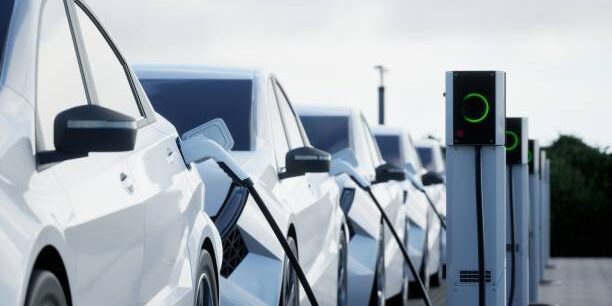The global transition toward electric vehicles (EVs) is reshaping the future of transportation, driven by a collective effort to reduce carbon emissions. However, this exciting shift also presents new challenges and opportunities, particularly in the realm of supply chains. As the demand for EVs accelerates, supply chains must evolve to support this innovative technology. This evolution is a powerful testament to the dynamic nature of global logistics, adapting to deliver a more sustainable future.
A key transformation is happening in the EV battery supply chain. Batteries are the heart of electric vehicles, and their production and transportation require careful coordination. By localizing battery manufacturing facilities near EV assembly plants, supply chains can reduce costs and increase efficiency. This logistical refinement strengthens the integration of batteries into the broader supply chain, ensuring that the production of EVs runs smoothly and efficiently.
Manufacturers are also rethinking factory operations to meet the unique demands of EV production. Unlike traditional internal combustion engine (ICE) vehicles, EVs are built with fewer components, leading to simplified assembly processes. This shift is driving significant changes in factory floor logistics, as new tools and techniques are introduced to accommodate EV-specific needs. By adapting to these changes, supply chains are becoming more agile and responsive to the demands of the modern automotive industry.
The reduced maintenance requirements of electric vehicles also create a positive ripple effect across supply chains. With fewer parts and lower repair needs, the entire logistics system becomes more streamlined. This means fewer resources are required for storage, transportation, and maintenance, resulting in a more efficient supply chain. This transformation benefits both manufacturers and consumers, creating a supply chain that is leaner, more sustainable, and ready to support the growing EV market.
The shift to electric vehicles also presents a valuable opportunity to incorporate circular economy principles into supply chains. By reusing and recycling critical materials like lithium and cobalt from EV batteries, manufacturers can reduce their reliance on raw material imports and lower production costs. This commitment to sustainability enhances the resilience of supply chains while contributing to global environmental goals. Integrating circular practices into the EV supply chain ensures a greener, more resource-efficient future.
#ICTTMNews #SupplyChainEvolution #EVRevolution #SustainableLogistics #FutureOfMobility #NewsUpdate







